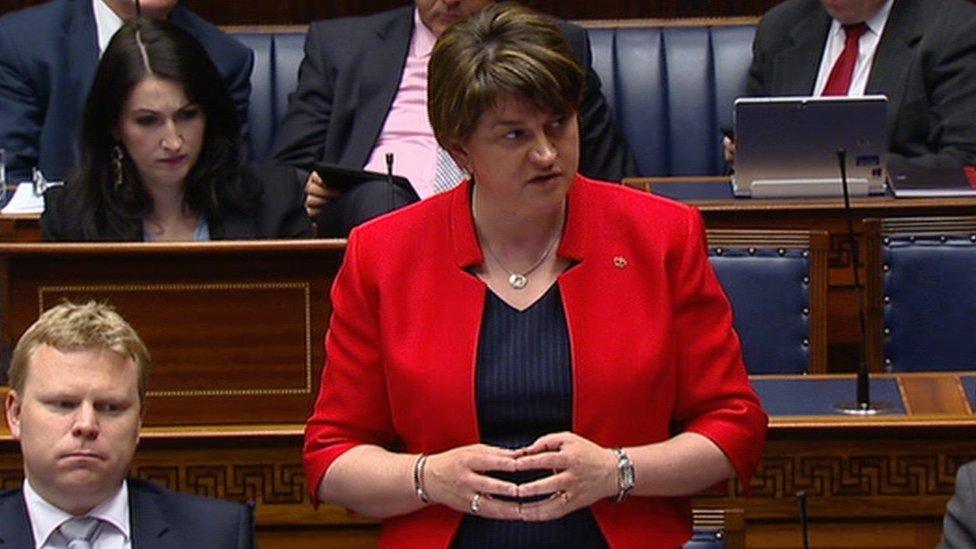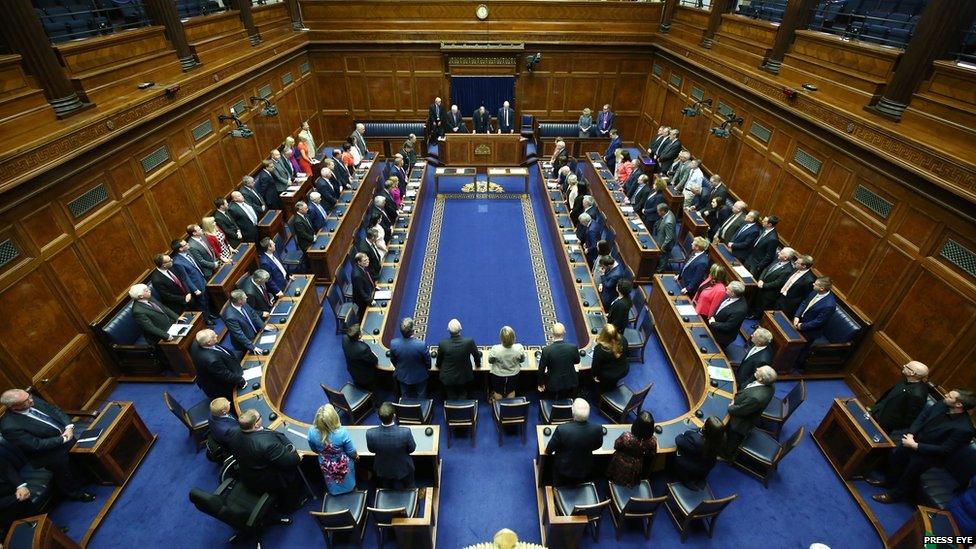DUP leader would like to scrap Stormont's petition of concern
- Published

Arlene Foster says her opponents want to see the petition of concern retained for their own use
DUP leader Arlene Foster has told the BBC she would like to see the petition of concern scrapped at Stormont.
Mrs Foster said: "We would like to see the petition of concern got rid of".
Any vote in the assembly can be made dependent on a petition of concern if it is supported by 30 MLAS - meaning the motion will only pass if it has cross-community support.
The purpose is to protect one community from legislation that would favour another.
Mrs Foster added: "I think we need to talk about, maybe after the election, getting rid of the petition of concern altogether."

What is a petition of concern?
If a petition of concern is presented to the assembly speaker, any motion or amendment will need cross-community support.
In such cases, a vote on proposed legislation will only pass if supported by a weighted majority (60%) of members voting, including at least 40% of each of the nationalist and unionist designations present and voting.
Effectively this means that, provided enough MLAs from a particular community agree, that community can exercise a veto over the assembly's decisions.
A valid petition requires the signatures of 30 MLAs.

Introduced as part of the Good Friday Agreement, the procedure was originally designed as a way to safeguard minority rights in the assembly.
However, its use has become controversial, and the DUP have been criticised for using the mechanism to stop votes on same-sex marriage being passed, and for preventing motions of no confidence going through.

The petition of concern was used 115 times over a five-year period
According to figures compiled by an investigative website, The Detail, over a five-year period from 2011 to 2016 the petition of concern procedure was used 115 times.
The DUP was the only party with more than 30 MLAS so it presented petitions without other party support.
Over the five years, they signed 86 petitions, while the SDLP and Sinn Féin signed 29.
The Green Party endorsed four, Alliance three, and the Ulster Unionists two.
Speaking to BBC Northern Ireland, Arlene Foster made it clear that she wanted to see change
"We talk a lot about the petition of concern and our opponents talk a lot about the petition of concern," she said.
"We would actually like to see the petition of concern got rid of for everything, but I think our opponents would like to keep it for the things they want to to use the petition of concern for and not allow us to use it."
Alliance Party leader Naomi Long has called for reform of the petition of concern.
She said the veto was the main reason developments such as same-sex marriage had not yet been introduced in Northern Ireland.
"We need to get it back to its original intent and away from what it has become, which is used and abused to protect parties' selfish interests," Mrs Long said.